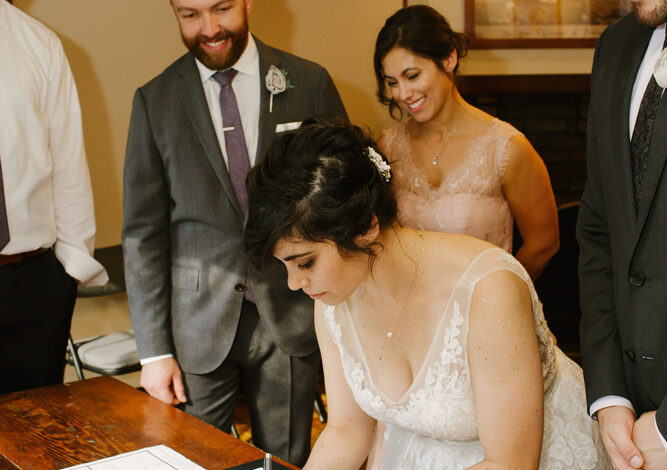Ketubah and the Changing Roles of Women in Israeli Society

In a society where longstanding traditions intersect with modern ideals, the role of women in Israel is continuously evolving. This article explores the historical significance of Ketubah – a traditional Jewish marriage contract – and how it reflects the changing roles of women in Israeli society. From a mere contractual obligation to a symbol of empowerment, the evolution of Ketubah mirrors the progressive shift in Israeli women’s societal roles.
The Historical Significance of the Ketubah: What Does It Represent?
The ketubah, a traditional Jewish marriage contract, holds deep historical significance in Israeli society. Dating back centuries, the ketubah has served as a legally binding document that outlines the rights and responsibilities of both the husband and wife in a marriage. It represents a tangible commitment between two individuals and their families, ensuring financial provisions and protection for the wife.
At its core, the ketubah symbolizes the importance of marriage and family values within Jewish tradition. It reflects a sense of unity and commitment, emphasizing the mutual obligations of both partners. The ketubah serves as a reminder of the sacred bond between a husband and wife, as well as their shared responsibilities towards each other and their future family.
Furthermore, the ketubah also reflects the cultural and societal norms of the time in which it was created. It often includes details about dowry, property rights, and other financial arrangements. This historical context provides valuable insights into the roles and expectations placed upon women in Israeli society throughout different periods.
Throughout history, the ketubah has evolved to adapt to changing societal norms and values. While its fundamental purpose remains the same, the language and content of the ketubah have undergone alterations to reflect the changing roles of women in Israeli society. Today, many couples choose to personalize their ketubahs, incorporating modern language and inclusive terms that reflect their egalitarian values.
The Evolution of the Ketubah: A Testament of Change?
The ketubah has undoubtedly evolved over time, reflecting the changing dynamics and values of Israeli society. In the past, the ketubah primarily focused on the financial provisions for the wife, emphasizing the husband’s responsibilities as the sole provider. However, as women’s roles have expanded and societal norms have shifted, the content and language of the ketubah have also undergone significant changes.
One notable aspect of the ketubah’s evolution is the shift towards more egalitarian language and content. Many modern ketubahs now emphasize the equal partnership between spouses, acknowledging the shared responsibilities and contributions of both husband and wife. This shift signifies a departure from traditional gender roles and a recognition of the changing dynamics within marriages.
Additionally, the ketubah has become more inclusive, recognizing diverse relationships and family structures. Same-sex couples, for example, have adapted the ketubah to reflect their unions, highlighting the importance of equality and love in their relationships. This inclusivity demonstrates a broader acceptance of different forms of love and relationships within Israeli society.
Furthermore, the ketubah has also evolved to address contemporary issues such as divorce and the rights of women. In some modern ketubahs, specific clauses may be included to protect women in the event of divorce, ensuring their financial security and well-being. This change reflects an increased awareness of the challenges faced by women and a commitment to creating more equitable relationships.
“The Ketubah is no longer what it used to be.” – A Contemporary View
As Israeli society undergoes profound transformations, the traditional understanding of the ketubah has been challenged and redefined. Today, many view the ketubah as more than just a legal document outlining financial obligations. Rather, it has become a symbolic representation of a couple’s commitment to equality, love, and shared values. This contemporary view reflects a shift towards prioritizing emotional and spiritual connection within marriages, rather than purely material considerations.
In the past, the ketubah primarily focused on financial provisions, with little emphasis on emotional or psychological well-being. However, in today’s society, couples are placing greater importance on emotional support, communication, and mutual respect. As a result, the ketubah has expanded its scope to include clauses that address the emotional needs of both partners, ensuring a more holistic approach to marriage.
Moreover, the contemporary view of the ketubah acknowledges the evolving roles and aspirations of women in Israeli society. With more women pursuing careers, education, and personal goals, the ketubah has adapted to reflect these changes. It now recognizes and supports women’s ambitions, affirming their right to personal and professional fulfillment.
Furthermore, the contemporary view of the ketubah has also been influenced by a growing awareness of gender equality and feminism. Many couples now choose to include language in their ketubah that promotes equal partnership and shared decision-making. This reflects a desire to dismantle traditional power imbalances within marriages and foster a more equitable and respectful relationship.
How Is the Role of Women in Israeli Society Changing?
The role of women in Israeli society is experiencing significant changes, with a gradual shift towards greater gender equality and expanded opportunities. Women in Israel are increasingly taking on leadership positions in various sectors, including politics, business, academia, and the military. This trend is evident in the growing representation of women in the Knesset, Israel’s parliament, as well as in the appointment of female CEOs and high-ranking military officers.
Additionally, there has been a notable increase in women pursuing higher education in Israel. More women are enrolling in universities and colleges, earning degrees in various fields, and actively participating in intellectual and professional spheres. This surge in education has empowered women to challenge societal norms and break traditional gender roles, paving the way for greater gender parity.
Moreover, women in Israel are becoming more assertive and vocal about their rights. They are advocating for gender equality, combating gender-based violence, and promoting policies that address the specific needs and challenges faced by women. Grassroots movements and organizations have emerged to support and empower women, providing resources, networking opportunities, and platforms for dialogue and activism.
In recent years, the Israeli government has also taken steps to promote gender equality and address gender disparities. Initiatives have been implemented to increase women’s representation in decision-making bodies, reduce the gender pay gap, and enhance work-family balance. These efforts reflect a growing recognition of the importance of women’s contributions to society and the need to create a more inclusive and equitable environment.
The Impact of Feminism on the Ketubah and Israeli Society
Feminism has had a profound impact on the Ketubah, a traditional Jewish marriage contract, and Israeli society as a whole. With the rise of feminist ideologies and movements, there has been a growing demand to revise the language and content of the Ketubah to reflect more egalitarian values.
Traditionally, the Ketubah placed greater emphasis on the husband’s rights and responsibilities within the marriage, while the wife’s role was often limited to being a supportive partner and caretaker of the home. However, feminist activists and scholars have called for a more equitable representation in the Ketubah, advocating for language that recognizes the equal partnership and contributions of both spouses.
Today, many couples in Israel are opting for Ketubahs that reflect their shared values and commitment to gender equality. These Ketubahs often include provisions that emphasize mutual respect, shared decision-making, and equal distribution of household responsibilities. By rewriting the Ketubah in more egalitarian terms, couples are challenging traditional gender norms and promoting a more inclusive understanding of marriage.
The impact of feminism on Israeli society extends beyond the Ketubah. The feminist movement has played a crucial role in promoting gender equality in various aspects of life, including education, employment, and politics. Women in Israel have increasingly gained access to opportunities that were once reserved for men, breaking through barriers and shattering glass ceilings.
Feminism has also sparked conversations and debates about gender roles, societal expectations, and the need for equal representation and rights. These discussions have led to policy changes and legal reforms that aim to address gender disparities and create a more equitable society.
What Does the Future Hold for Women’s Roles in Israel?
As the role of women in Israeli society continues to evolve, the future holds promising prospects for further advancements in gender equality. There is a growing momentum towards breaking down barriers and challenging traditional norms, which will likely result in increased opportunities for women in various domains.
One area where women’s roles are expected to expand is in politics. With the increased representation of women in the Knesset, it is anticipated that more policies will be enacted to address gender disparities and promote women’s rights. This can lead to greater gender balance in decision-making processes and a more inclusive political landscape.
In the workplace, efforts to reduce the gender pay gap and enhance work-family balance are likely to gain momentum. Companies and organizations are recognizing the benefits of gender diversity and are actively working towards creating inclusive environments that support women’s career advancement. This includes initiatives such as mentorship programs, flexible work arrangements, and policies that combat workplace discrimination.
Education will also play a crucial role in shaping the future of women’s roles in Israel. The increasing number of women pursuing higher education will result in a more educated and skilled female workforce. This will not only benefit the individuals themselves but also contribute to the overall economic growth and development of the country.
However, challenges still remain. Deep-rooted cultural and societal norms can be resistant to change, and it will take continued advocacy and efforts to overcome these barriers. Ongoing education and awareness campaigns will be essential in debunking gender stereotypes and promoting gender equality.
The transformation of the Ketubah from a traditional marriage contract to a symbol of women’s rights and empowerment mirrors the larger societal changes happening within Israel. As women continue to break barriers and redefine their roles in society, the significance of the Ketubah will likewise evolve. The future of Israeli society promises to be one of continued progress, with women leading the way.
https://noaattias.com




